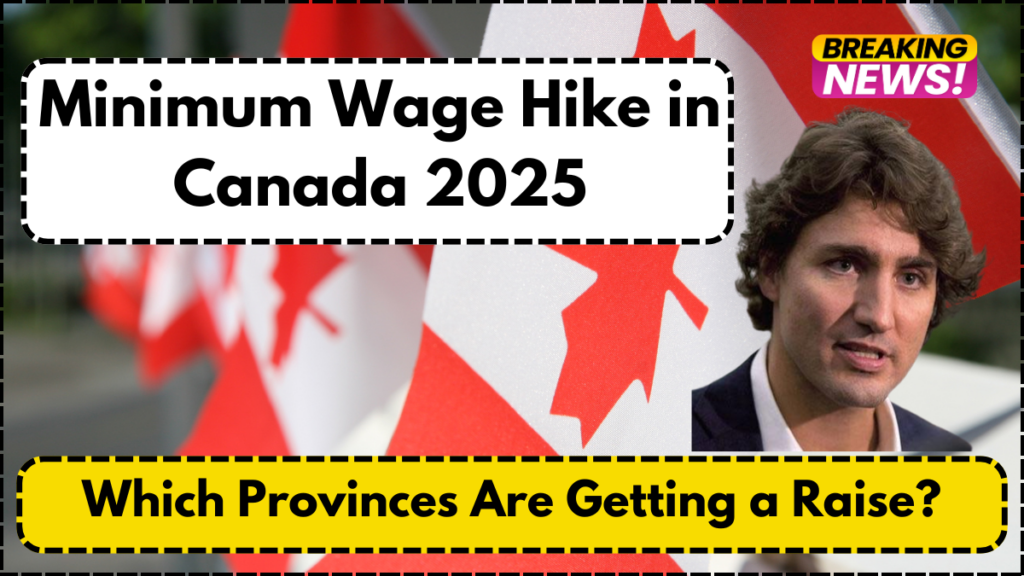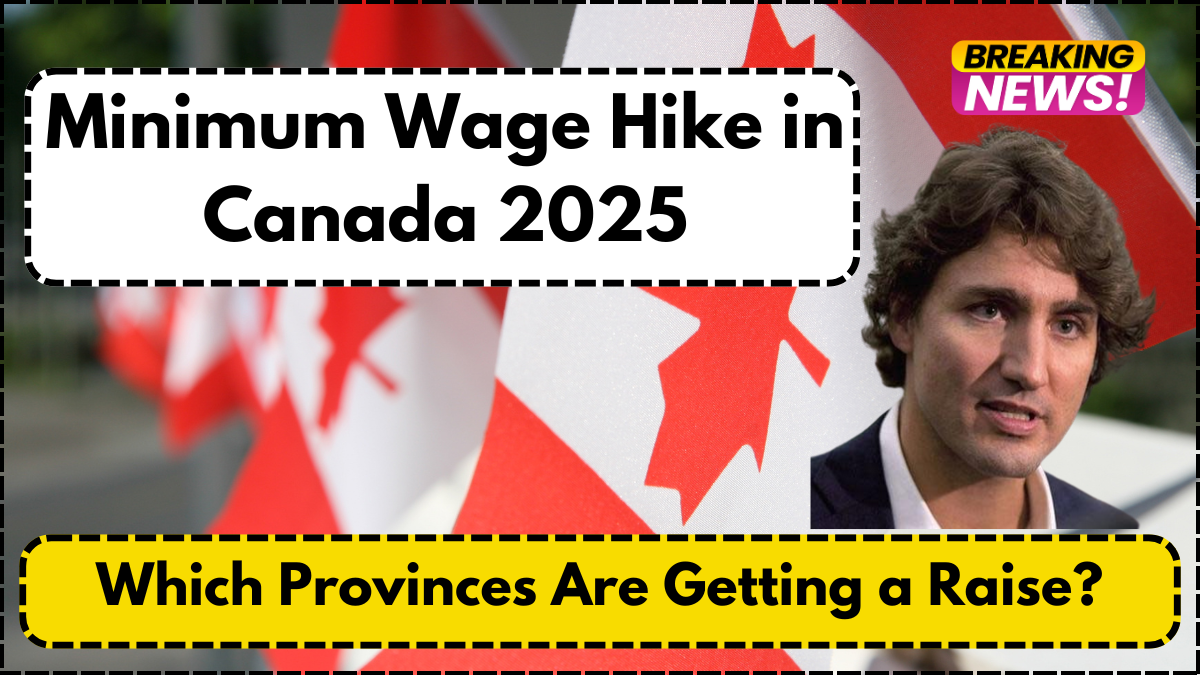In 2025, Canada is set to revise its minimum wage rates across several provinces to better align with inflation and the rising cost of living. This strategic adjustment reflects the federal and provincial governments’ efforts to ensure fair earnings for workers across the country. By indexing minimum wages to the Consumer Price Index (CPI), Canadian policymakers aim to provide economic stability to the labor force.
This guide outlines the key wage changes across provinces, expected rate adjustments, and what workers and employers can expect throughout the year.

What Is the Minimum Wage in Canada?
Minimum wage refers to the lowest legal hourly pay that employers must provide to their workers. While there is a federal minimum wage, it primarily applies to federally regulated sectors such as interprovincial transportation, postal services, banks, and Crown corporations.
Each of Canada’s 10 provinces and 3 territories determines its own minimum wage based on regional economic factors. Adjustments are typically influenced by inflation, local labor market conditions, and cost of living variations.
As of April 1, 2025, Canada’s federal minimum wage has increased to $17.30 per hour, reflecting a 3.4% rise from the previous year.
Provinces Increasing Minimum Wage in 2025
Many provinces and territories are adjusting their wage rates between April and October 2025. Here’s a breakdown of the scheduled changes:
| Province/Territory | Current Wage (2024) | Expected Wage (2025) | Effective Date |
|---|---|---|---|
| New Brunswick | $15.30 | ~$15.77 | April 1, 2025 |
| Nova Scotia | $15.00 | $15.40 | April 1, 2025 |
| Newfoundland & Labrador | $15.60 | $15.91 | April 1, 2025 |
| Yukon | $17.59 | ~$17.97 | April 1, 2025 |
| Quebec | $15.75 | TBD | May 1, 2025 |
| British Columbia | $17.40 | TBD (CPI-linked) | June 1, 2025 |
| Northwest Territories | $16.05 | TBD | September 2025 |
| Ontario | $17.20 | ~$17.82 | October 1, 2025 |
Details of Key Provincial Increases
New Brunswick
Tied closely to CPI adjustments, New Brunswick’s minimum wage is projected to increase to approximately $15.77/hour starting April 1, 2025. This move aligns with the province’s annual policy of economic recalibration.
Nova Scotia
Following its commitment to wage fairness, Nova Scotia will raise its base wage from $15.00 to $15.40 per hour, also effective April 1, 2025.
Newfoundland and Labrador
Already on a pre-planned wage roadmap, Newfoundland and Labrador will implement a $0.31 hike, bringing the minimum wage to $15.91 in April 2025.
Yukon
Yukon, known for having one of the highest wages in Canada, will revise its current $17.59 rate to nearly $17.97, tracking inflation.
Quebec
While no official projection is currently available, Quebec is expected to announce a wage increase effective May 1, 2025, keeping pace with the rising cost of living.
British Columbia
B.C. will revise its rate as of June 1, 2025, although the final figure is pending. It will be based on CPI metrics from the previous year.
Northwest Territories
This province will reveal its updated wage sometime in the first half of 2025, with new rates expected to apply from September.
Ontario
Ontario’s policy of announcing rate changes in April and implementing them in October continues. The current rate of $17.20 is expected to rise to approximately $17.82/hour by October 1, 2025.
Why Are Minimum Wages Increasing in 2025?
Minimum wage hikes are largely driven by:
-
Inflation Pressures: As living costs climb, stagnant wages erode purchasing power.
-
Labor Shortages: Attracting and retaining workers requires competitive compensation.
-
Equity Initiatives: Adjusting wages ensures lower-income workers are not disproportionately affected by economic downturns.
-
Indexing to CPI: Aligning wages with inflation provides a transparent and data-driven mechanism for wage setting.
These adjustments show a collective commitment to fair compensation, ensuring all Canadian workers maintain a reasonable standard of living.
What This Means for Workers and Employers
For workers, this increase offers a slight buffer against inflation, improving financial security. For employers, especially small businesses, it’s a prompt to reassess staffing budgets and operational costs.
Both groups must remain informed as official announcements for provinces like Quebec, B.C., and Northwest Territories are expected in the coming months.
Conclusion
The 2025 Canada minimum wage updates reflect a proactive national stance on income fairness amid growing economic challenges. As inflation persists and cost-of-living concerns deepen, wage adjustments will remain essential in supporting the workforce. Canadians can expect further transparency and regular updates as CPI-based wage mechanisms evolve.
FAQs
What is the new federal minimum wage in Canada in 2025?
As of April 1, 2025, the federal minimum wage is $17.30/hour, a 3.4% increase from 2024.
Will every province raise its minimum wage in 2025?
Not all provinces have confirmed their increases, but most have either scheduled adjustments or are expected to make announcements soon.
How is the minimum wage calculated?
Most provinces calculate wage increases using the Consumer Price Index (CPI) to reflect inflation and economic conditions.
When will Ontario’s new wage take effect?
Ontario’s minimum wage will increase on October 1, 2025, with the new rate expected to be $17.82/hour.
Why doesn’t one standard wage apply across all of Canada?
Canada’s labor laws are governed at both federal and provincial levels, allowing each province to set rates based on their local economic realities.
For More Information Click Here
Pari is a passionate writer known for captivating stories that blend imagination and reality. Inspired by travel, history, and everyday moments, Pari crafts narratives that resonate deeply with readers.
